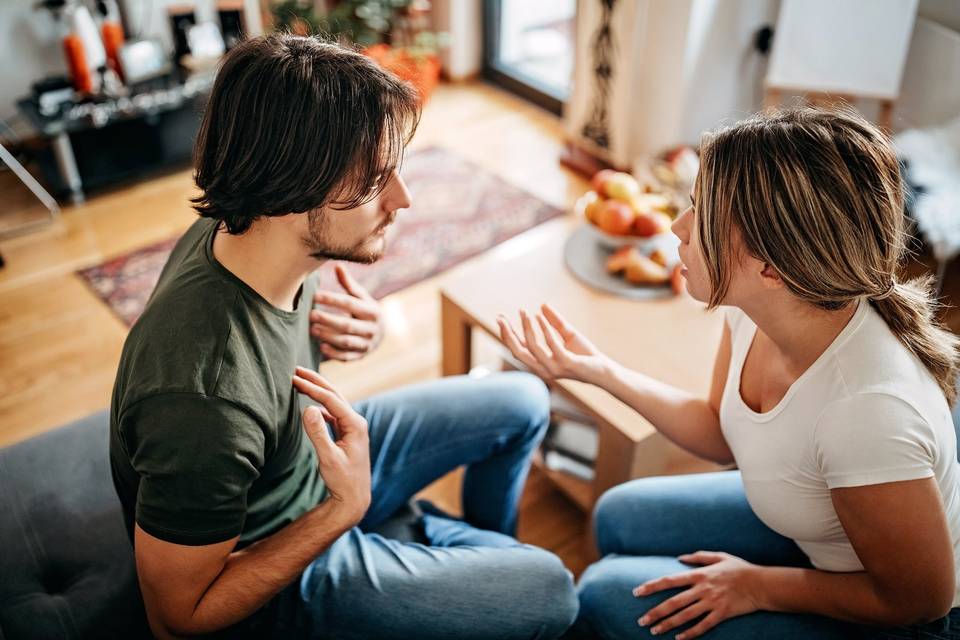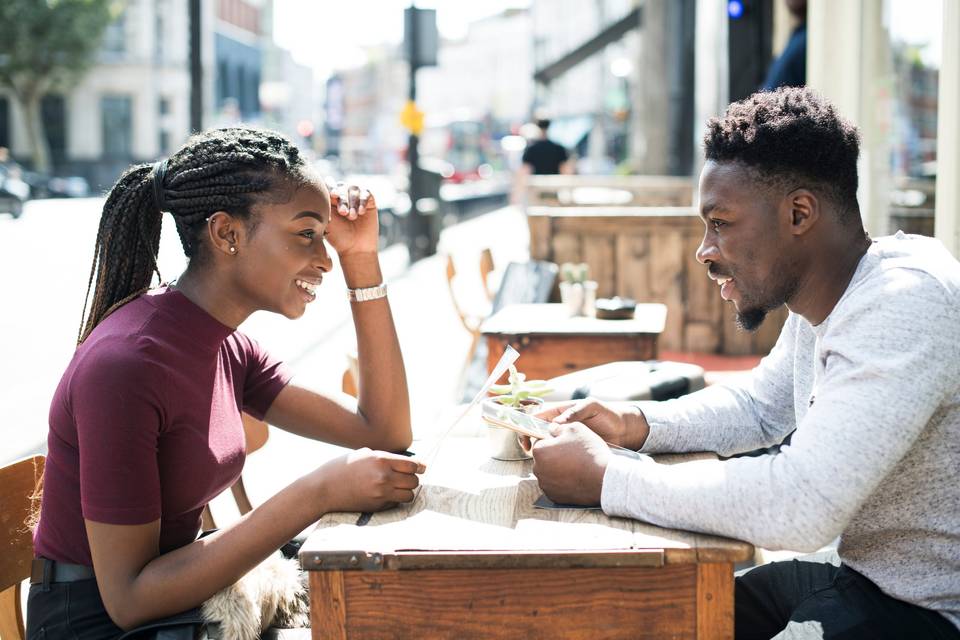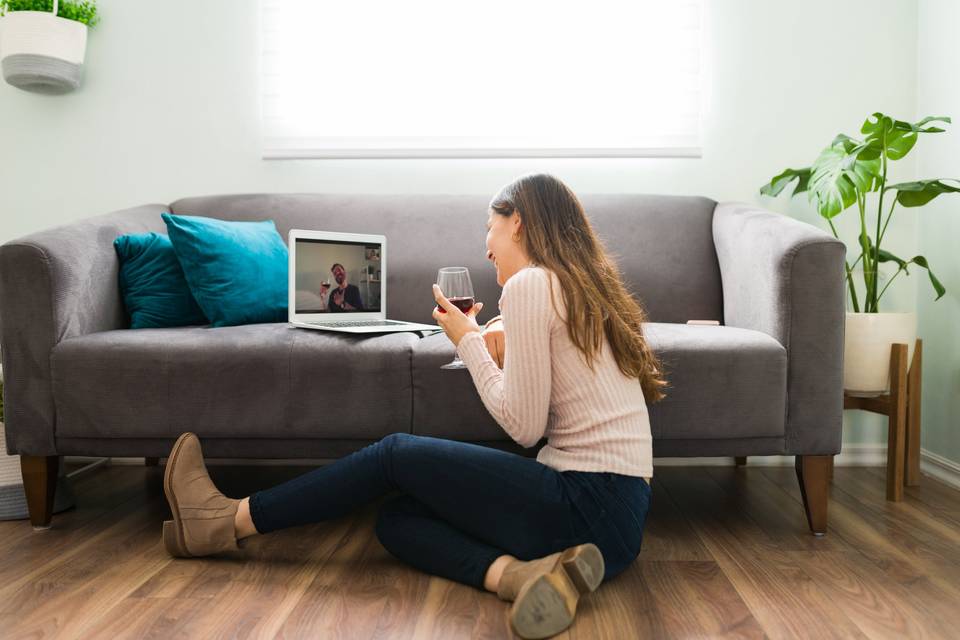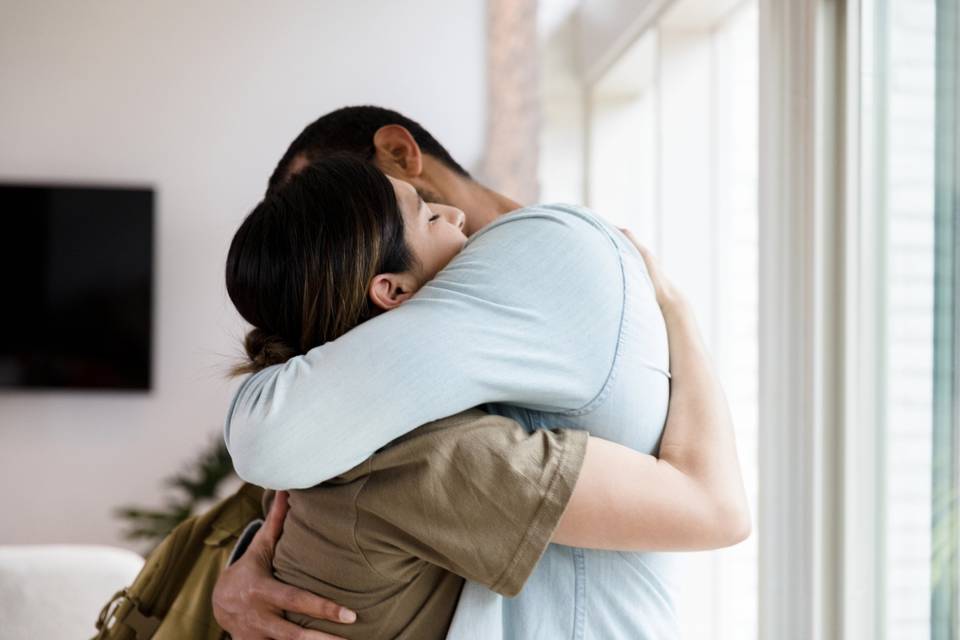6 Ways to Develop Trust in a Relationship
Whether you're in a new relationship or have been together for a while, trust between partners is essential. Here, experts share the top ways to develop trust in your relationship.
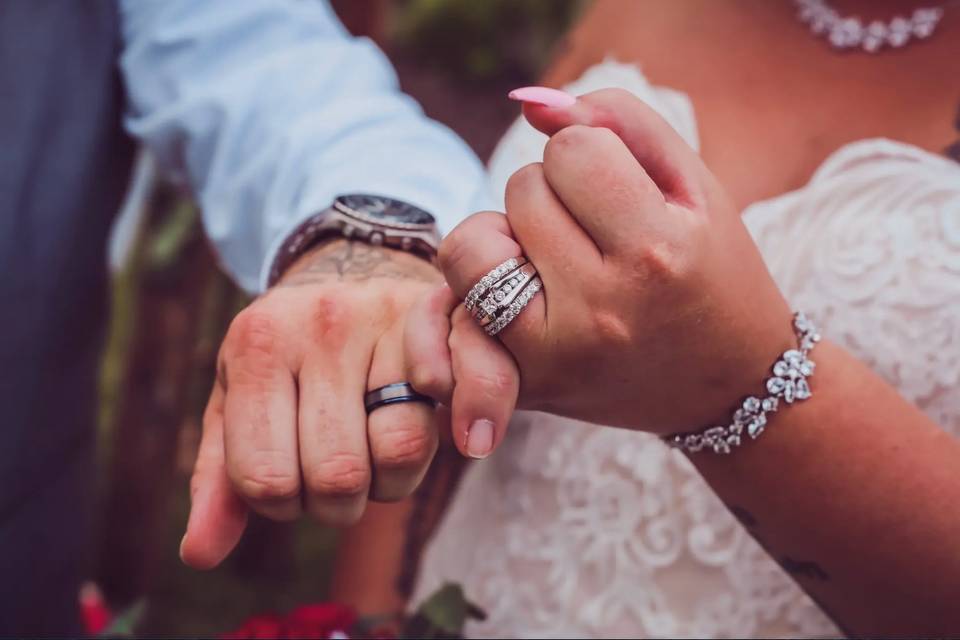
In general, there are three key essentials that are the foundation to a successful and healthy relationship: love, trust, and respect. These are the building blocks to which a partnership is built, explained Carli Jo, a sex and relationship coach, and without these important layers, the relationship may collapse. That's why even if you are in a committed partnership, building trust and sustaining it is key to making a lasting romantic relationship work.
"I believe that trust is co-created over time in a relationship," she explains. "Deep trust, the kind that goes far beyond the threat of cheating, the kind that moves your system into fully opening up to one another, allowing them to see all sides of you is vulnerable." It takes time to build trust like that and in her experience, it's only created through trial and error as well as willingness on both sides to have open communication.
What Exactly is Trust in a Healthy Relationship?
For Jo, building trust all comes down to vulnerability, no matter the good intentions. "How much do I trust myself to be real and honest? To say the uncomfortable thing that needs to be said. How much do I trust that my silly, awkward or messy parts will be loved and accepted?" she said. "And how much do I trust my partner to handle it all? If I can find trust there, I have found true love."
Trust is a complex emotion because it can mean different things for different people, explains Kinga Mnich, a social psychologist. "Trust allows people to be who they are without having to step into a role and control their emotional expressions and personality," she says. "That’s why we often hear from couples that they fell in love with a person—because he or she made them feel like they can be their true self."
According to Mnich, first comes attraction or admiration in a relationship, and then comes trusts. "We need to feel attracted to someone to experience trust."
But in a basic sense, she explains that trust means that the person you are in a relationship with has your back and will keep you in mind when making decisions, ensuring your well-being. "It means to feel accepted and loved," she says, and "love and trust are deeply interconnected."
The Benefits of Trust
It's one thing to know that you should be able to trust your partner (and vice versa) but it's another to understand the specific ways in which trust helps you. According to Debra Roberts, LCSW, a conversation expert and creator of the Relationship Protocol, these priceless benefits include:
- It creates a sense of security.
- It allows partners to be vulnerable and open with each other.
- It helps partners to grow, both as individuals and within the relationship.
- It gives us the strength we need to get through difficult times when we know our partner has our back.
How to Build Trust in a Relationship
Although many know the importance of trust in order to have a successful relationship, some may not know the best way to create it. Or that one of the the best ways to build trust is by creating very clear boundaries with your partner. "What?! Boundaries with my spouse?! Yes!" she explains. "The more you communicate what you want and don't want, what you're ok or not ok with, the more your partner can relax, knowing where they stand with you."
Think of building trust in your relationship as a paint by number. "What makes those paintings so fun is knowing exactly what goes where, taking the guesswork out moves the nervous system from angst, fear or worry to calm and relaxed," she says. "Put another way, when someone is clear and direct with what is or is not allowed and doesn't waiver, the safer and more trusting we are in that person's presence."
Other ways to build trust in a new relationship, long-distance relationship or with loved ones who have trust issues include:
Maintain eye contact.
Body language is important and this is Jo's favorite trust-building exercise where two people sit across from each other (in person or over video) and stare into each other's eyes. "Although uncomfortable at times, eye gazing builds connection, safety and trust," she says. "Not to mention increased intimacy."
Build trust over time.
Although it's possible to meet someone immediately see them as trustworthy or feel a strong connection to them, Roberts reminds that a deep and lasting trust must be built over time. "I like to say that trust grows from every interaction and experience that you have together," she says. "It creates a base for the relationship to be built upon."
Give each other the benefit of the doubt.
People in healthy, trusting relationships demonstrate their commitment to one another by giving each other the benefit of the doubt. "We start from the belief that our partner’s intentions are good," says Roberts. "This allows us to feel connected to our partner and confident and safe in the relationship."
Be consistent.
If you're looking to build trust with your partner, demonstrating your commitment in these areas are at the core to building it: to him or her, your relationship, your own health and well-being. "It is important to consistently behave in ways that show that you value your partner and that you are reliable," she says.
Keep your word.
Although this isn't always possible to do, Tobin urges to follow through as often as possible and if for some reason you can't, it's just as important to always explain why and be honest about what happened in that moment.
Participate in "sliding door" moments.
Mnich explains that these are usually small moments which are not easily recognized by everyone and are easy to miss. "For example, when your wife is sitting at the kitchen table and she is looking out the window thoughtfully while you are passing by on your way to the garage, will you stop and ask what’s on her mind or will you pretend that you are not noticing?" she says. "These small moments is when we actually build trust because it communicates that we have genuine interest (and admiration) in the other person."
Other trust-building behaviors that Tobin suggests working to adapt into your everyday life:
- Learn to listen without interrupting.
- Make a commitment that your partner’s needs are at least as important as your own.
- Do what you say you're going to.
- Don’t lie, and when you do, admit it.
- Take responsibility for your actions and don’t pass the blame.
- Be kind and considerate on a daily basis—show that you care.
- Strive to understand before being understood.
How is Trust Broken?
A lot of time, trust is broken when someone withholds information and doesn't set aside time for the other person. Whether it is intended or not, this lack of effective communication is extremely damaging in the long run and should be a red flag. And once you have that lack of trust, it can be difficult to rebuild. "It can seem harmless to come home 30 minutes after you said you would," Jo said for example, "but over time your partner might lose trust in your word."
Other actions that cause broken trust, according to Tobin, often without the person even realizing it include:
- Being late and not acknowledging it.
- Forgetting that you promised to do something.
- Avoiding dealing with issues because you’re afraid of conflict.
- Being passive and letting the other take too much responsibility.
Simply put, a partner's actions should focus on consistently being trustworthy and reliable. It's okay to make mistakes but if you work to do this whenever possible, "you’ll avoid a whole host of relationship issues, from the bedroom to the kitchen and beyond," Tobin added.

